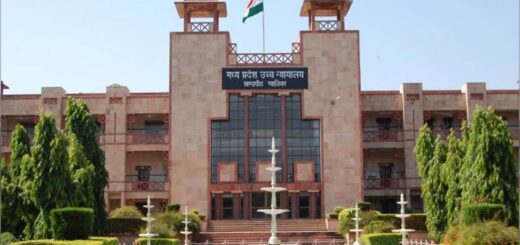Mistake-Based Exemption From Limitation Needs Proof Of Reasonable Effort: Case Is Time Barred If Mistake Could Have Been Found Sooner: Supreme Court.

The Supreme Court noted that a person can ask for an exemption from time limits due to a mistake, but if they could have found out about the mistake sooner with reasonable effort, the time limit starts from that earlier date, which might prevent the lawsuit. The Court overturned the Madhya Pradesh High Court’s decision that canceled a notice to Bapuna Alcobrew Private Limited about minimum guarantee charges for electricity use. The Court stated that the respondent’s obligation to pay these charges was already established in earlier cases, and this matter could not be brought up again. Justices Dipankar Datta and Pankaj Mithal remarked, “The main point is that the first respondent’s responsibility for not paying the minimum guarantee charges was previously decided and, since that decision was not appealed, it is final in the eyes of the law, preventing the first respondent from raising the issue again. We believe that the second writ petition from the first respondent should not have been accepted.”
The Madhya Pradesh Madhya Kshetra Vidyut Vitran Company Limited made a deal with the respondent for electricity supply. According to the agreement, the respondent had to keep a minimum level of consumption, which was later increased in additional agreements. In 1996, the respondent asked to set up an 807 kVA biogas turbo generating (TG) set for their own use. The electricity board allowed this but stated that the TG set could only be used as a backup and not run at the same time as the board’s supply. However, the board claimed that the respondent was using the TG set alongside the board’s supply, breaking the agreement, and issued a notice to cancel the TG set’s approval. The High Court put a hold on this notice.
The board issued a notice demanding Rs. 70.5 lakhs due to low electricity usage. The respondent contested this demand, but the High Court confirmed that the company had to pay minimum guarantee charges regardless of actual usage. Later, the company withdrew its writ petition. A second notice for the same amount was sent, prompting the respondent to file another writ petition. The High Court canceled this notice, stating that under Section 56(2) of the Electricity Act, 2003, the claim was too late since it was issued after the two-year limit. The Supreme Court noted that the High Court’s earlier orders had already confirmed the respondent’s obligation to pay the minimum guarantee charges, making it a settled issue. Therefore, the Court ruled that the respondent’s second writ petition was not valid as it addressed a matter that had already been resolved.
The Court also explained that if someone claims they couldn’t file a suit within the time limit due to a mistake discovered after the deadline, they can seek exemption from the limitation under Order VII Rule 6 of the Code of Civil Procedure, 1908, and such exemption may be granted in suitable cases.
If a suitor claims to have found a mistake later, but evidence shows that reasonable effort could have revealed the mistake sooner, the limitation period starts from that earlier date. If this earlier date makes the suit exceed the allowed time for filing, the limitation will apply. A mistake cannot be used as an excuse for negligence in every case. Lack of proper diligence or good faith does not give a suitor the right to misuse a helpful law like section 17. It is up to the court to distinguish between valid claims and those that are not, the Bench clarified. As a result, the Supreme Court approved the appeals.
Cause Title: The Madhya Pradesh Madhya Kshetra Vidyut Vitran Company Limited & Ors. v. Bapuna Alcobrew Private Limited & Anr. (Neutral Citation: 2024 INSC 829)
Appearance:
Appellants: Senior Advocate Liz Mathew; AOR Rohit K. Singh; Advocates Bagavathy Vennimalai and Prakhar Srivastav
Respondents: Senior Advocate Jayant K. Mehta; AOR B. Vijayalakshmi Menon and Salvador Santosh Rebello; Advocates Kuber Dewan, Anuradha Dutt, Neeharika Aggarwal, Kaushtubh Srivastava, Raghav Dutt, Raghav Sharma, Jaskirat Pal Singh and Pranjal Pandey









